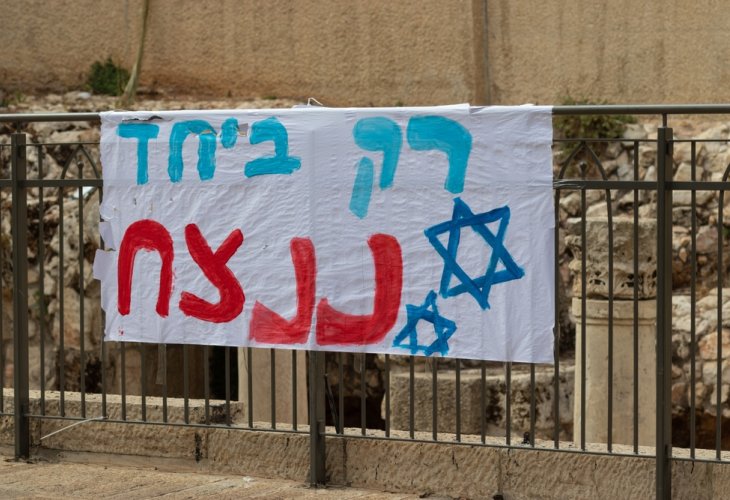Jewish Law
Our Strength is Our Unity
Peace between Jews leads to Divine blessing; strife leads to destruction
 (Photo: shutterstock)
(Photo: shutterstock)No blessing without peace
The Talmud states, "The Holy One, blessed be He, found no vessel to hold blessing for the Jewish People other than peace, as it is said (Psalms 29:11): 'Hashem will give strength to His people; Hashem will bless His people with peace'" (Mishnah Uktzin 3:12).
Without peace between people, Heavenly blessing cannot endure.
Strife stops the flow of abundance
The Midrash tells us, "Great is peace, for all the blessings, goodness, and consolations that Hashem brings upon the Jewish People are sealed with peace."
The kohanim bless the Jewish People only with peace; at the end of the Amidah prayer, we ask for peace; at the end of Birkat Hamazon (Grace after Meals) we say that "Hashem will give strength to His people; Hashem will bless His people with peace."
In his book Otzrot HaMussar (Treasury of Ethics), Rabbi Moshe Yechiel Zuriel explains: "The reason for all this is that even if Hashem grants all the blessings, if there is no peace and unity among the recipients – those blessings have no endurance ... When people hate each other, the flow of blessing from Hashem is cut off."
As below, so too above. When we focus on the flaws in other people and accuse them in our minds of wrongdoing, those accusations ascend on High and prompt a reconsideration of whether the recipients of Divine blessing are really worthy of them.
The Heavenly Court rules according the judgments made below. How so? If someone is generous to others and always tries to give them the benefit of the doubt, then the Heavenly Court will be generous with him and also judge him favorably. If, however, someone is always complaining about how other people behave and putting the worst possible interpretation on their actions, then the Heavenly Court will treat him the same way he treats others.
Therefore, when there is peace between people, no accusations can be leveled at them and blessings flow down unimpeded.
The Torah belongs to a nation that loves peace
Only when the Jewish People united as one was the Torah given to them, as the Midrash states:
"Hashem sought to give the Torah to the Jewish People when they left Egypt, but they were arguing amongst themselves ... When they arrived at Rephidim, however, they set aside their disputes and became one unit...
"Hashem then said: 'The entire Torah is peace, and to whom shall I give it? To a nation that loves peace.'"
Without peace nothing is of any value
In the Torah, Hashem promises us physical and spiritual abundance if we follow His teachings, and tells us: "I will give peace in the land." The Midrash notes that all the physical delights are of no value unless there is peace -- "The Torah tells us that peace is equal to everything."
Strife leads to destruction
The Talmud teaches us that discord between people is actually harmful and leads to disaster.
"Great is peace and hated is discord. How so? A city in which there is discord -- it will ultimately be destroyed ... A synagogue in which there is discord -- it will ultimately be destroyed. A house in which there is discord --it will ultimately be destroyed, and the Sages also said that discord in a house leads to immorality.
"If there are two courts in one city and there is discord between them -- they will ultimately perish, and the Sages said discord in a court leads to the destruction of the world" (Derech Eretz ch. 7).
Peace is the ultimate goal
"Hashem created the world only so that there would be peace among His creations," the Midrash teaches.
Peace protects us from strict retribution for our sins, as the Talmud states: "Great is peace, for even when the Jewish People worships idols, if there is peace among them, the Holy One, blessed be He, says 'I do not wish to harm them.'"
Furthermore, the Jewish People will not be redeemed from exile until they are at peace with one another: "Israel will not be redeemed until they become one unified group."
The Midrash tells us: "Hashem said to the Jewish People: 'My beloved children, what do I ask of you? Only that you love one another and honor one another'" (Midrash Eliyahu Rabbah, ch. 28).

